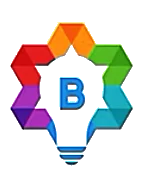
SNAP&Conners-3 Questionnaire: PARENT FORM
The SNAP (Swanson, Nolan, and Pelham) Rating Scale is a commonly used assessment tool for identifying symptoms of ADHD, Oppositional Defiant Disorder (ODD), and other behavioral challenges. The Conners-3 (Long Version) provides a comprehensive evaluation of ADHD, ODD, Conduct Disorder (CD), Anxiety, Learning Difficulties, and Social Struggles. This questionnaire is completed by parents and teachers based on their direct observations of the child's behavior across different settings.
General Details
Section A: Inattention (ADHD – Inattentive Symptoms)
This section evaluates difficulties with attention, focus, and task completion, which are core symptoms of ADHD-Inattentive Type. Individuals with inattention often struggle with staying focused, following instructions, and completing tasks without becoming distracted
Guidance for Completing the SNAP Questionnaire.Each question should be rated based on the individual’s behavior over the past six months, using the following scale:
0 – Not at all (The behavior is never or rarely observed)
1 – Just a little (The behavior is occasionally observed)
2 – Quite a bit (The behavior is frequently observed)
3 – Very much (The behavior is always observed or is a significant problem)
Section B: Hyperactivity/Impulsivity (ADHD-Hyperactive-Impulsive Symptoms)
This section assesses excessive activity levels, impulsive actions, and difficulties with self-control, which are core symptoms of ADHD – Hyperactive/Impulsive Type. Individuals with these symptoms may struggle to remain seated, talk excessively, or act without thinking about the consequences.
Section C: Oppositional Defiant Disorder (ODD) Symptoms
This section evaluates patterns of persistent rule-breaking, aggression, or behaviors that violate social norms. Conduct Disorder (CD) symptoms are typically more severe than Oppositional Defiant Disorder (ODD) and may involve aggression, deceitfulness, or disregard for rules and authority.
Section D: Conduct Disorder (CD) Symptoms
This section evaluates patterns of persistent rule-breaking, aggression, or behaviors that violate social norms. Conduct Disorder (CD) symptoms are typically more severe than Oppositional Defiant Disorder (ODD) and may involve aggression, deceitfulness, or disregard for rules and authority.
Section E: Anxiety Symptoms
This section assesses the individual's levels of anxiety, nervousness, and worry in various situations. Anxiety can affect daily functioning, school/work performance, social interactions, and overall emotional well-being.
Section F: Learning Problems & Executive Functioning
This section assesses the individual's academic challenges, cognitive processing abilities, and executive functioning skills, which are essential for planning, organizing, and completing tasks efficiently.
Section G: Peer & Social Problems
This section evaluates the individual's social interactions, relationships with peers, and ability to navigate social situations. Difficulties in this area can impact friendships, school/work environments, and emotional well-being.
Section H: Emotional Dysregulation & Mood Symptoms
This section assesses how well the individual regulates their emotions and their general mood stability. Emotional dysregulation refers to difficulty managing emotions, leading to intense reactions, mood swings, frustration, or difficulty calming down after distressing events.
Declaration
I confirm that the information provided in this form is accurate and truthful to the best of my knowledge. I understand that this information will be used as part of the assessment process and may contribute to recommendations for support or intervention. If there are any changes or updates to this information, I will notify the relevant professional.